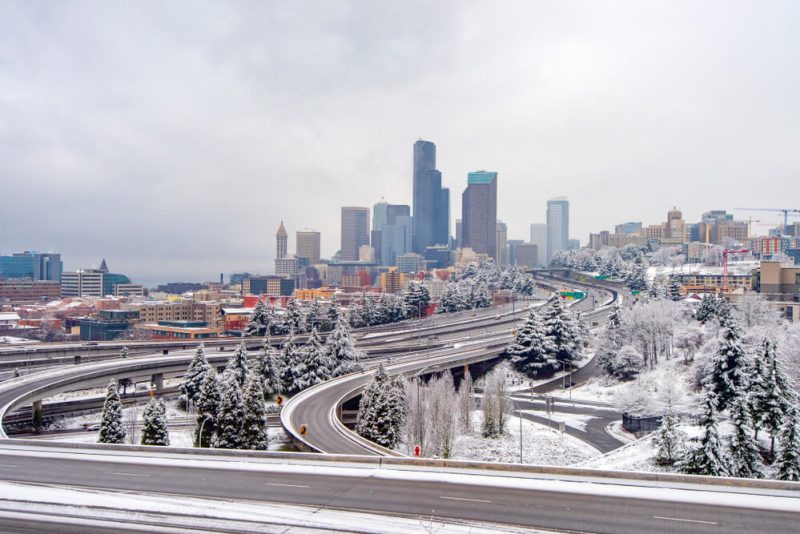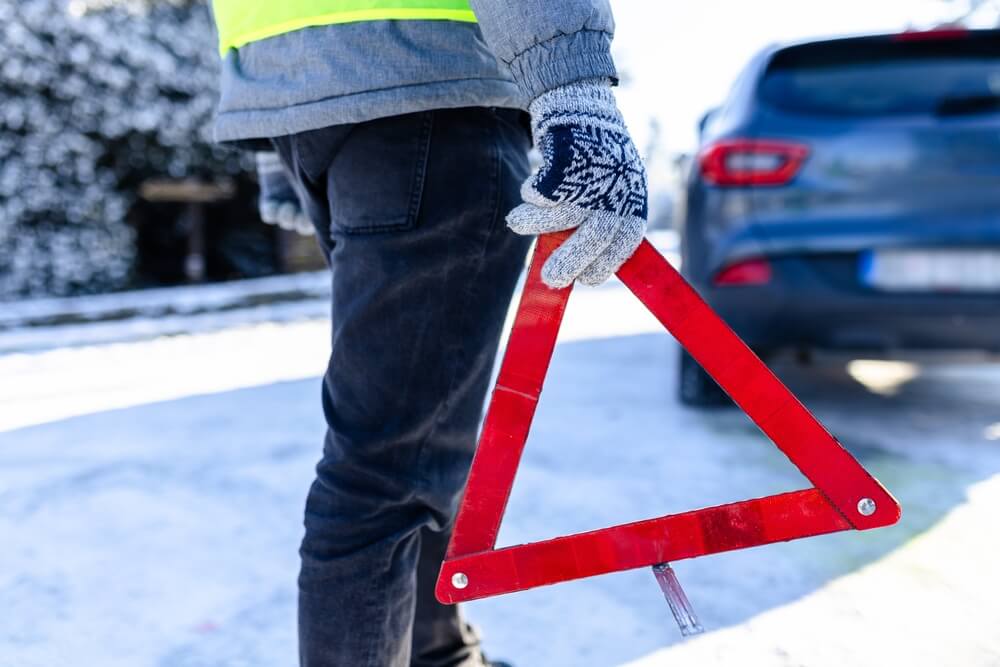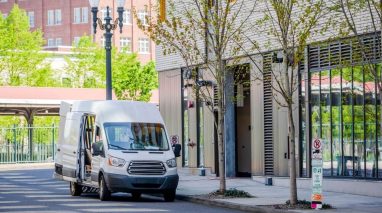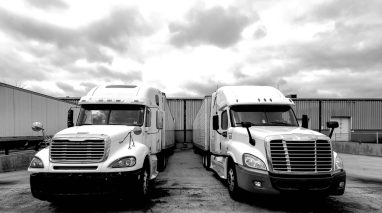Blog
Commercial Auto Insurance 101: Avoiding Roadside Disasters in the PNW

Running a business in the Pacific Northwest usually means you’re gonna be learning to love rain, coffee, and roundabouts, as well as the occasional lumbering moving truck that swears it can “fit under that bridge …” Yikes, whoops. If your company relies on PNW business vehicles, you already know that one small road mishap can throw your whole darn day off course. That is exactly where commercial auto insurance steps in. It is not just “car insurance but bigger.” It is a shield for your people, your gear, your schedule, and most importantly, your bottom line.
Learn how to keep your premiums in check and your business running smoothly in this guide that will completely demystify the commercial auto insurance experience. You’ll also get some of the tricks seasoned professionals use to avoid overspending when shopping for Washington commercial auto insurance quotes! Your Vern Fonk agent is available whenever you need a cup of coffee and some direct discussions.
Why Commercial Auto Insurance Matters in the PNW
Well, you already know the PNW — and Washington specifically — is a special place with mountains, coastlines and ferry schedules that move like jazz. Throw in short winter daylight, endless drizzle, and a delivery rush that peaks exactly when the sky decides to dump a brand new lake on I-5. Your business car coverage has to keep your wheels moving despite all that. Here’s why you need to have the right policy up here in this lush state.
Common Commercial Vehicle Claims
Unlike personal auto, PNW commercial auto insurance accounts for business risks: loaded cargo, multiple drivers, daily stop-and-go, and the fact that your “quick run to Ballard” turns into 14 stops and one narrow alley where a raccoon owns the easement.
The most common claims include fender benders during deliveries, rear-end chain reactions in slippery conditions due to reduced braking action, and scrapes and dents from any number of causes. From vehicle damage to liability, all of that exposure can add up and wreck your quarterly net income. Avoiding that means more money in your pocket at the end of the day.
Weather Hazards and Seasonal Risks
Aside from rogue sasquatch encounters on back roads in the woods, you’ll have a few things to contend with during the various seasons up here in the PNW. The biggest problems involve that pesky molecule known as “H2O” — rain, snow, and ice. Combine that with wind, fallen branches, smoke, ash, boulders, and long winter nights — it all adds up.
That’s not to say that business owners in Washington face special risks compared to other parts of the country, but certainly the hazards are more common and frequent, especially during certain seasons. This ain’t Arizona. Or the Great Plains (although they have their own problems, like tornadoes).
Coverage Options for Your Business Fleet
When business owners like you ask for “the cheapest plan,” what you usually want is the right plan that avoids paying twice. That is to say, avoiding having to pay your premiums, then realizing you don’t have the right protection and paying yet again. Whether you’re looking for fleet insurance in Washington or coverage for a single vehicle, you usually customize a package (with a good agent) that includes the pieces below.
Liability and Collision Coverage
First up — liability. This is one of the most important pieces of the puzzle. It’s where most of your exposure gets backstopped. Here’s what you need:
- Liability (bodily injury and property damage): If your driver causes a crash, liability pays for the other party’s injuries and repairs. This is the foundation of Washington commercial insurance, and it is required when you register a commercial vehicle.
- Collision: Repairs your vehicle after a crash, whether you tapped a guardrail or the guardrail tapped you.
- Comprehensive: Non-crash events like theft, vandalism, falling trees, deer that forgot to signal, and broken glass.
- Uninsured/Underinsured Motorist: If the other driver cannot cover your losses, this helps bridge the gap.
- Medical Payments or PIP: Pays medical bills fast. Helpful when you want your people seen right away without arguments over fault.
Some entrepreneurs may also add on certain items like hired/non-owned, trailer interchange and cargo (especially helpful if you’re running a trucking operation), and gap coverage to cover the difference between the actual cash value of the vehicle and the loan balance in the event of something known as “total loss.”
Roadside Assistance and Breakdown Protection
Nobody plans to stall at the top of Snoqualmie Pass with 200 cupcakes in the back. Roadside assistance fleet coverage can include towing, jump starts, tire changes, lockouts, and fuel delivery. It provides cheap peace of mind, and it keeps your customer ETA from turning into “we will see you never.” If your fleet operates after hours or in rural counties, this add-on pays for itself the first time a starter motor taps out.

Managing Multiple Drivers and Vehicles
So, how do Washington trucking companies save big on insurance? Fleet management is not just clipboards and a stern look. Insurers price risk based on how your vehicles are used, who drives them, and how you enforce safety. The good news is that smart practices can lower premiums for company vehicle insurance over time.
Policies for Employee Drivers
There are a few things to keep in mind on this front. First is a clear driver policy — who can drive, acceptable MVR history, no phones while driving, etc. You also need to run license and MVR checks, and verify that annually at a minimum. Some insurers may also provide a discount if you give them a driver roster.
In addition, you want training refreshers (especially with all the moisture up here). Short quarterly training is ideal, and beats a once-a-decade lecture drivers will inevitably forget. Finally, you need to know who has keys and when. These are the basics. If your business uses TNC platforms or gig-style drivers, learn where personal coverage ends and commercial begins when it comes to getting insurance coverage as an Uber driver in Washington.
Tracking Fleet Usage and Risk
Have you heard of telematics? These tools show speed, hard braking, location, and incident video. They are not about spying. They are about proving your driver was cut off by a Subaru with three kayaks and a dream. Data can qualify you for safer-driver discounts and can crush fraudulent claims.
Regular preventive maintenance helps, too. Oil, brakes, wipers, and tires are your fraud prevention squad. Skipping wiper blades before November is a lifestyle choice and not a good one. Among many common myths about commercial trucking in the PNW is that you can skimp on maintenance.
Filing Commercial Auto Claims Smoothly
Commercial auto accidents happen. Calm beats chaos every time. Your plan should be simple enough to follow while someone’s hazard lights are clicking like a metronome.
Documentation and Reporting
Following an accident, move out of traffic if possible. Call 911 when in doubt. Photos of damage and scene, other driver’s license and insurance, witness contacts, weather and road conditions, and a quick sketch of the vehicle positions can all help for evidence purposes (and don’t argue about fault when you’re roadside — leave that to the adjuster).
Notify your insurer quickly. Same day is best. Provide your formal accident report and any dash cam footage. If a vehicle is out of service, that lost use matters for the claim. So be sure to track downtime.
Avoiding Premium Increases
Here’s a five-step plan you can use to avoid premium increases. It’s worth it to run down this checklist quarterly. Here’s what to know:
- Fix root causes. If backing claims keep happening, implement spotters and backup alarms.
- Use training events to your advantage. Document them. Share with your agent at renewal.
- Choose higher deductibles where it makes sense. Keep small losses in-house if you can easily absorb them.
- Bundle smartly. Pair commercial auto with general liability or commercial property for better pricing.
- Shop with a specialist. Agencies that write a lot of trucking insurance in the PNW will understand carrier appetites and can place unusual risks without turning your application into a novel.
Keep Your PNW Business Moving With Commercial Auto Coverage
If you want coverage that gets the PNW and does not panic when it hears “Snoqualmie,” talk to the local pros at Vern Fonk Insurance. Get a quote and compare options for commercial auto insurance, delivery vans, service trucks, and full fleets, or give us a call at (800) 455-8276. We’re also likely to have an office in your neck of the woods — check out our locations!
FAQs
Are There Legal Requirements for Commercial Auto Insurance in Washington?
Yes. If your vehicle is used for business, you need vehicle liability coverage that meets state minimums. Many contracts, job sites, and shippers require higher limits and proof of insurance. If you have loans or leases, your lender will require comprehensive and collision.
Are Delivery Vehicles Covered Differently Than Company Cars?
The base policy can be the same, but endorsements change. Delivery van coverage often adds cargo protection, hired and non-owned auto, and sometimes a schedule of additional insureds for major clients.
Are There Special Requirements for Food Trucks or Service Vehicles?
Food trucks often need coverage for kitchen equipment, spoilage, and liability for customer injuries near the truck. Service vehicles should insure tools and portable gear. Talk with a specialist so your policy follows your equipment wherever it goes.
How Does Weather Affect Commercial Auto Insurance Rates?
Carriers price risk by claims history and exposure. The PNW’s wet roads, winter ice, and low winter light increase claim frequency. You can counter this with telematics, good maintenance, and driver training that targets rain, hills, and night driving.
Do I Need Separate Coverage for Multiple Drivers?
Not separate policies, but your insurer needs to know who is driving and how often. Fleet policies can list drivers, use a “permissive use” approach, or apply eligibility rules. Accurate rosters help you avoid claim delays.
What Happens if an Employee Uses the Vehicle for Personal Errands?
Personal use can be allowed if your policy says so. Set rules in writing. If an employee takes the truck for a furniture move and it is not permitted, you can have coverage disputes and a very awkward Monday.


